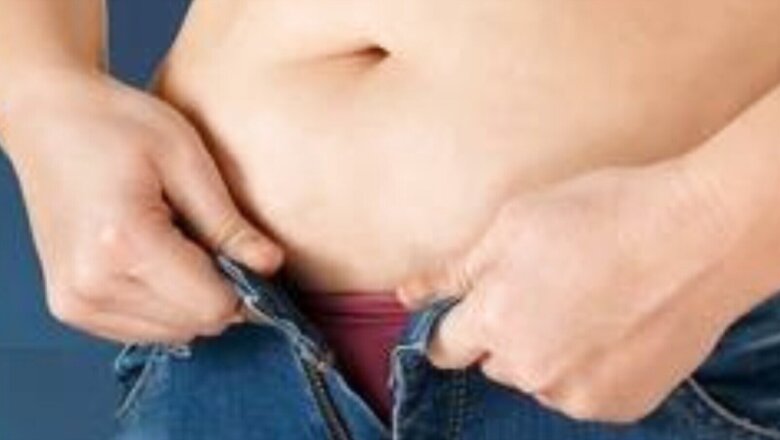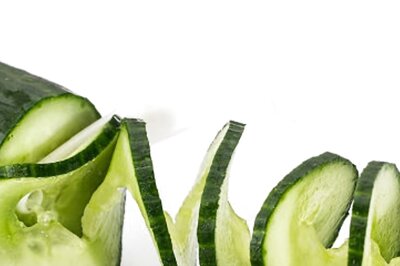
views
If you are attempting to reduce weight, you might have heard about the term water weight. It is simply the total amount of water that your body holds. A human body contains 60 per cent water on average, which may vary by up to 1 to 2 kgs in a single day. This figure varies depending on how much water you consume and how much water you lose through perspiration and urination.
As a result, this can have a visible effect on some people, particularly when combined with high sodium and low water diet. According to a study published in the National Library Of Medicine, physical inactivity, kidney and heart disease, gas, and constipation are all common discomforts that your body occasionally goes through if you suffer from increased water weight.
Water Retention: Causes
Food choices
Water retention can be caused by excessive sodium and carbohydrate diets. A deficiency of potassium and magnesium can lead to increased water weight.
Menstrual cycle
Natural hormone fluctuations in women might produce an increase in water retention in the week before menstruation. Cravings for salty foods and carbs might also contribute to increased water retention during this period.
Physical inactivity
Long periods of sitting or standing can prevent fluids from adequately circulating throughout the body. This causes water to accumulate around body tissue, resulting in oedema in the extremities of the body like feet and hands.
Kidney or heart diseases
Issues in the kidneys or heart can interfere with the regular flow of blood throughout the body. These disruptions might result in a fluid buildup, leading to oedema and additional water weight.
Medications
Many drugs cause water retention as a negative effect. Anti-inflammatories and several oral contraceptives are examples of such medicines. If any drug generates troubling side effects, a person should consult their doctor.
How to get rid of water weight
Exercise regularly
The American Heart Association advises a week of exercise of 2.5 hours. By keeping the body moving, you can avoid fluid retention and lose water weight.
Reduce carbohydrates
According to scientists, a 2,000-calorie diet should include around 275 grams of carbs each day. To reduce carbohydrate intake, substitute bread and pasta with meat, fish, or poultry
Improve your sleep
Sleep may also aid in the reduction of water weight. A study published in 2010 discovered that the number of hours spent sleeping affected your kidneys, which could result in reduced water retention.
Try supplements or water pills
Vitamin B6, magnesium, and potassium are some of the best vitamins and minerals for reducing water weight. Magnesium, in particular, is an electrolyte that helps regulate the quantity of water in your body. As per the National Institutes of Health, some evidence suggests that vitamin B6 supplements not only reduce water weight from bloating but also decrease symptoms of premenstrual syndrome (PMS).
Read all the Latest Lifestyle News here




















Comments
0 comment